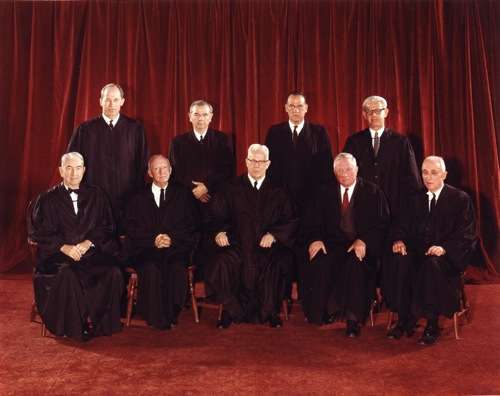UPDATE: On October 31, 1963, a pivotal moment in U.S. legal history unfolded when Cleveland Police Detective patrolled the streets and encountered John W. Terry, leading to a significant Supreme Court ruling that still resonates today. The Supreme Court’s decision in Terry v. Ohio redefined police authority and citizens’ rights under the Fourth Amendment.
This landmark case, decided during the Warren Court era, has ongoing implications for law enforcement tactics and civil liberties. The ruling established that police officers could stop and frisk individuals based on reasonable suspicion, a controversial standard that continues to spark debate across the nation.
The urgency of this historical moment is evident as citizens reflect on its impact on modern policing and community relations. The Fourth Amendment protects individuals from unreasonable searches and seizures, and the Terry ruling introduced nuances that allow for greater police discretion in high-crime areas.
In the case of Terry, the circumstances leading to his arrest involved a detailed pat-down executed by Detective McFadden, who suspected Terry and his associate were planning a robbery based on their suspicious behavior. This encounter not only led to Terry’s arrest but also set a precedent that has shaped police protocols across the United States.
As communities continue to grapple with issues of safety and civil rights, the implications of this ruling are more relevant than ever. Activists and legal experts are calling for a reassessment of the balance between public safety and personal freedoms, urging citizens to engage in discussions about the evolving role of law enforcement.
Looking ahead, legal analysts suggest that ongoing debates surrounding policing practices will likely influence future court decisions, as societal attitudes shift towards accountability and transparency in law enforcement. The legacy of Terry v. Ohio remains a critical touchstone for understanding the complex interactions between law enforcement and civil rights in America.
This October 31 marks not just a date in history but a reminder of the continual evolution of legal standards and their profound impact on everyday lives. As citizens reflect on this landmark case, the conversation around police practices and individual freedoms remains urgent and necessary.







